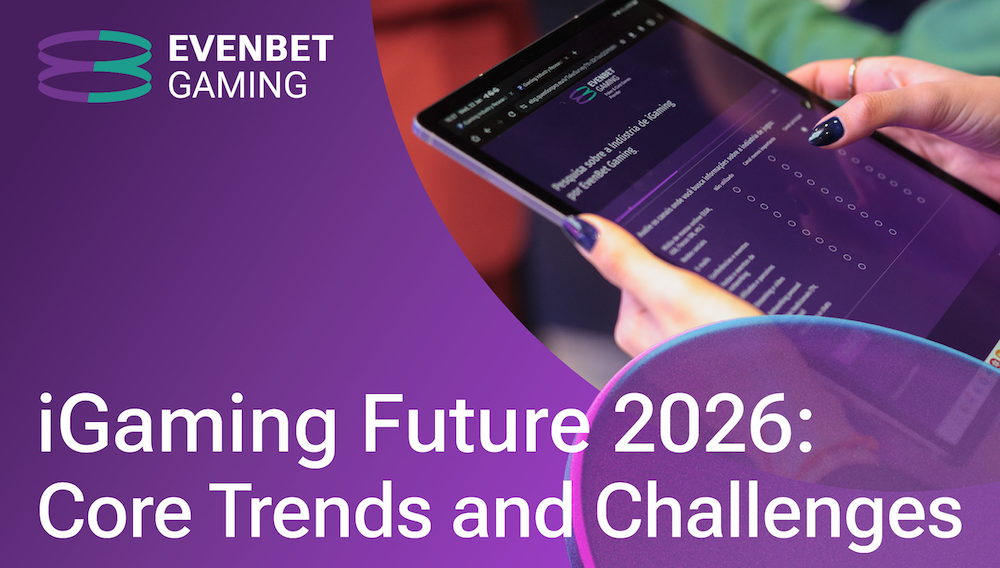Regulatory crackdown overtakes competition as iGaming industry’s top concern: Survey | AGB
Summary
The EvenBet Gaming report “iGaming Future 2026: Core Trends and Challenges”, based on surveys of more than 700 industry professionals, finds regulation has become the single biggest concern for iGaming executives (19%), ahead of competition (17%) and responsible gaming (13%). The sector is shifting from geographic expansion to consolidation and deeper focus in existing markets as governments and major platforms tighten rules.
The report flags abrupt and divergent regulatory moves worldwide: India has banned money-based online games and removed the skill/chance legal split (with penalties up to three years’ jail); the Philippines has banned POGO activity while lowering GGR tax for local operators; the UKGC has capped some bonus wagering conditions; the Netherlands banned sports sponsorship; Brazil introduced an 18% GGR tax and advertising limits; Colombia added a 19% VAT on player deposits.
Platform policies are also biting: Google now requires country/domain Ads Gambling Certification and bans personalised gambling ads; Meta switched from a whitelist to a blacklist and put legal compliance on advertisers; Telegram moved to deplatform many gambling bots and adopted a strict stance. To respond, operators are investing in personalised experiences, new game mechanics and AI/ML — affiliates are rapidly using AI for content, fraud detection and campaign automation. Experts warn 2026 will bring “severe market selection” favouring well-capitalised, tech-savvy and flexible operators.
Key Points
- Regulation is now the top industry concern (19%), ahead of competition (17%) and responsible gaming (13%).
- Major national moves: India bans money-based online games (removes skill/chance split); Philippines bans POGOs but lowers GGR tax for local ops; UK and Netherlands impose stricter advertising/sponsorship rules.
- Latin American changes include Brazil’s 18% GGR tax and advertising limits; Colombia added a 19% VAT on player deposits.
- Large tech platforms tightened policies in 2025 — Google (Ads Gambling Certification, no personalised gambling ads), Meta (blacklist approach), Telegram (mass deplatforming of gambling bots).
- Industry response: heavy investment in personalised player experience (21%), new game mechanics (20%) and AI/ML (19%); affiliates lead AI adoption for content and fraud control.
- Marketing effectiveness now demands localised strategies — a one-size-fits-all approach no longer works across Europe, Asia and Latin America.
- Forecast: 2026 will see severe market consolidation; only operators with scale, capital and operational agility likely to thrive.
Author’s take (Punchy)
This is a wake-up call. The rules are changing fast and unevenly — and platforms are calling the shots alongside governments. If your playbook still centres on growth-at-all-costs, you need an urgent rethink: compliance, localisation and tech investment are now defensive necessities and competitive advantages. Read the full detail if you’re building strategy for 2026 — it matters.
Why should I read this?
Seriously — read this if you work in iGaming, marketing, regulation or investment. It cuts through the noise and shows where the real pressure points are: legal risk, platform restrictions and rising acquisition costs. The piece saves you time by summarising key market moves and practical industry responses so you can plan where to protect budget and where to invest.
Context and relevance
The story matters because it reframes the sector’s priorities: from chasing new markets to defending licences, adapting to platform rules and deploying technology to lower costs and improve retention. For regulators, platforms and operators, the changes signal a move towards stricter consumer protections, higher taxation in some jurisdictions, and tighter advertising controls. For affiliates, marketers and product teams, it means prioritising localisation, compliance-aware customer acquisition and AI-enabled efficiency.
